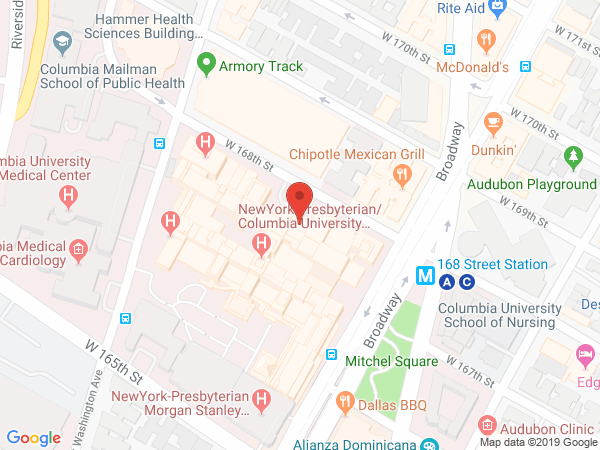Collaborative and Multidisciplinary Pilot Research (CaMPR) General and Integrating Special Populations (CaMPR-ISP) Pilot Award
This service is provided by the Pilot and Collaborative Studies Resource (PCSR) and Integrating Special Populations Resource (ISP).
Overview
The CaMPR and CaMPR-ISP program focuses on the innovative assembly of teams to gather preliminary data to address unresolved clinical, translational and public health problems with novel approaches informed by interdisciplinary and multidisciplinary collaboration. CaMPR and CaMPR-ISP’s goals are to:
- Support multi-and interdisciplinary research.
- Train and mentor a new generation of multidisciplinary, translational research investigators.
- Expand and optimize the utilization of outstanding new and existing resources at Columbia University.
- Support pilot work with the clear goal of submitting an NIH or other extramural proposal.
- Support strategic areas of focus, including special populations (pediatrics, geriatrics, rare diseases, and emerging pathogens in our community).
With these goals in mind, the CaMPR and CaMPR-ISP pilot award provides funding to support the formation of investigative teams aimed at addressing a significant health problem at the cellular, individual, or community level. Successful applicants are expected to implement plans to publish findings and to acquire future funding based on CaMPR or CaMPR-ISP award findings.
- Duration: One year
- Award amount: $40,000
- Number of awards: Up to four awards per year
Applications will be accepted in either of the two program areas described below:
CaMPR
- Goal:
- To support the formation of investigative teams in multi- and interdisciplinary research across all stages of the translational science spectrum from basic research to public health.
- Requirements:
- Projects must involve faculty collaborations across at least two departments at Columbia University.
- Faculty/Investigators from New-York Presbyterian Hospital (non-MD health professionals) may also apply, providing collaborators are from a CU school.
- Priorities:
- Projects that bring together faculty with expertise from diverse disciplines who have not previously been involved as co-investigators.
- Projects that are collaborations across schools at the CUIMC, Morningside, or Manhattanville campuses.
- Projects that are in novel areas for the principal investigator.
- Projects that involve junior faculty members, preferentially serving as principal investigator.
CaMPR-ISP
- Goals:
- Integrating Special Populations (ISP) supports the formation of investigative teams aimed at studying diseases across the lifespan and utilizing rare diseases as tools to study more common ones, at CUIMC and within the community.
- The ISP goals are to foster collaborations both within each special population and across special populations that will:
- Provide expertise necessary to study diseases across the lifespan.
- Utilize rare diseases as tools to study more common diseases.
- Increase the breadth of dissemination of the results of these efforts, with the goal of further increasing collaborations among investigators within and across the special populations.
- Create culturally sensitive engagement, recruitment, and educational tools to facilitate ISP-based research in Washington Heights, Inwood, Harlem, and The Bronx.
- Requirements:
- Projects focused on special populations: Pediatrics, Geriatrics, Rare Diseases, and/or Emerging Pathogens in our Community.
- Priorities:
- Projects that focus on health issues of importance to the communities of Washington Heights/Inwood/Harlem/The Bronx and that meaningfully engage patients or other relevant members of the community.
- Projects with PIs that are junior investigators.
See a list of current and past CaMPR planning grant and pilot award recipients and ISP prior awardees here.
Eligibility
- Principal investigator(s) must have a faculty appointment at Columbia University of assistant professor or higher.
- Postdoctoral fellows are not eligible to apply as principal investigators.
- Teams are limited to no more than six investigators.
- Although senior leaders of the Irving Institute may be consulted during the preparation of the application, they should not be listed as co-investigators or collaborators.
- Teams may include outside consultants with unique experience or expertise in innovative approaches not currently available at Columbia.
- During each application cycle, only one submission is permitted per principal investigator.
Special consideration will be given to:
- Applications from Principal Investigators and/or teams from underrepresented groups.
- Projects that include research plans reflecting alignment with the Irving Institute commitment to Diversity, Equity, and Inclusion.
Deadlines
The application cycle is closed.
Cite it, Submit it, Share it!
If your research has benefited from one or more Irving Institute resources, please remember to:
- Cite our CTSA grant, UL1 TR001873, in any relevant publications, abstracts, chapters, and/or posters.
- Submit your publications to PubMed Central (PMC) for compliance with the NIH Public Access Policy.
- Share your research updates with us by sending an email to: irving_institute@cumc.columbia.edu
